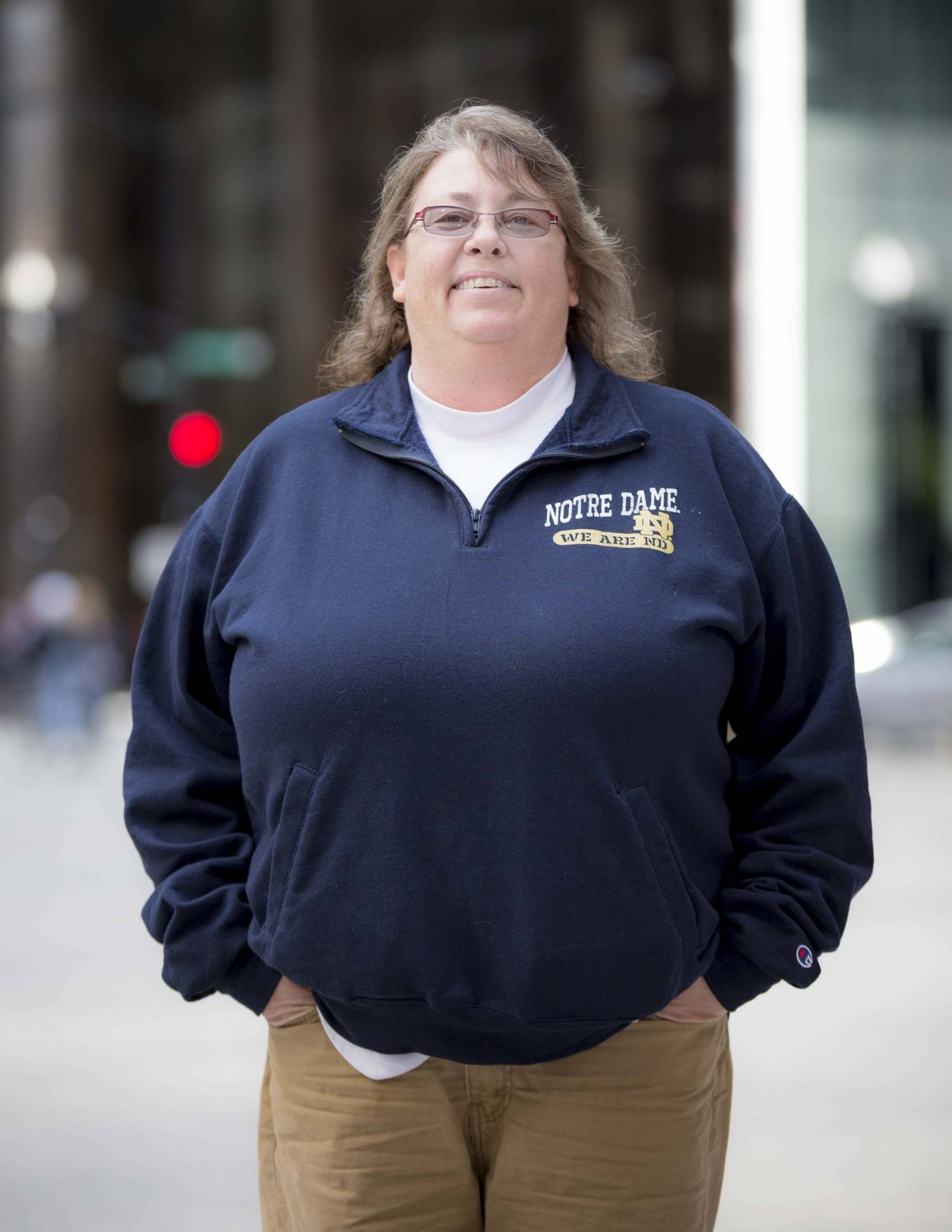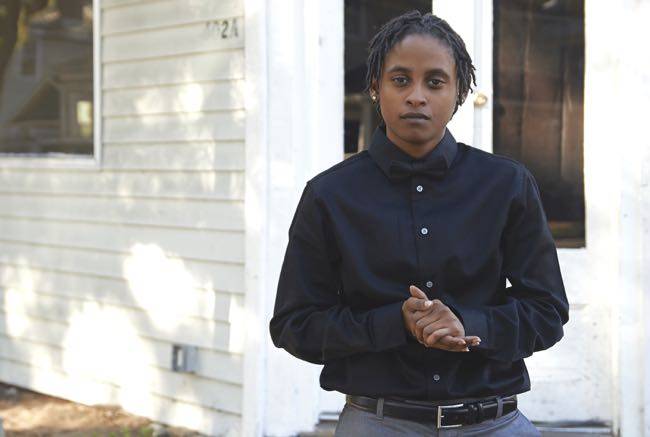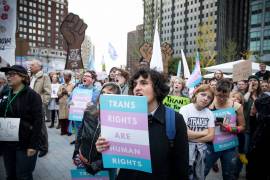LL: Give us an overview of the Hively case.
GN: Kim Hively taught at Ivy Tech Community College in South Bend, Indiana, for years and years, and was continually denied promotions and eventually forced out, because she’s a lesbian. She filed a charge with the Equal Employment Opportunity Commission (EEOC), and brought a lawsuit in the Northern District of Indiana. The judge there did what the judge had to do. There was existing Seventh Circuit precedent, and he said he was sympathetic to the situation, but he had to dismiss the case.
That’s when Lambda Legal got involved. We filed an appeal. I argued the case before a three-judge panel of the Seventh Circuit on September 30, 2015. Ten months later, the decision came down from the panel, saying essentially, “We agree with you, but we ruled the other way 15 years ago, and we’re sticking with it.” The opinion was very thoughtful and talked about a lot of the ways in which the courts seem to have gotten it wrong. And that was a powerful impetus for us to ask the entire Court to rehear the case [known as a rehearing en banc].
The circuit courts are right underneath the Supreme Court. To say the circuit courts do not like to rehear a case en banc is an understatement. It’s like being struck by lightning. But this is a very compelling case. And on October 11, they granted a rehearing en banc, and I will be arguing that case before 11 judges in Chicago on November 30. It’s a really big chance. If they were to rule in our favor on this, it would be a big game changer.
LL: What is the sex discrimination claim that we’re making in the Hively case?
GN: There are three arguments. The first goes back over 40 years to a case where women with young children were fired from their jobs, while men with young children got to keep their jobs. The argument was: You can’t have a different hiring policy for men than you have for women. In other words, it wasn’t that all women were discriminated against; it was women who did X who were discriminated, whereas men who did X were not. So the argument here is that women who date women are discriminated against, whereas men who date women are not.
The other argument is a gender stereotyping argument that says that Kim Hively did not conform with the stereotype that women should date only men, and because of that, she was fired.
The third argument is the analogy to interracial relationships. Discrimination against people in same-sex relationships is not the same — culturally, socially, historically — as discrimination against people in interracial relationships. But Title VII treats the five categories — race, color, religion, sex and national origin — the same, and the Supreme Court has said so over and over again.
LL: What is next for Kim, if we win?
GN: If Kim wins, she should get her day in court, and she can go back and prove her case in court in Indiana. There is, of course, a possibility if we were to win, that Ivy Tech could appeal to the Supreme Court. If the Court declines to hear the case, Kim would go back to Indiana to prove her case. If they grant the appeal, then the issue’s before the Supreme Court, and we would have the big show there, and she would have to wait to see whether they agree with the Seventh Circuit and allow her a day in court.







